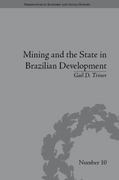Question
1. The U.S. labor movementwhich mostly represents blue-collar workers rather than professionals and highly educated workershas traditionally favored limits on imports from less-affluent countries. Is
1. The U.S. labor movementwhich mostly represents blue-collar workers rather than professionals and highly educated workershas traditionally favored limits on imports from less-affluent countries. Is this a shortsighted policy or a rational one in view of the interests of union members?
2. Recently, computer programmers in developing countries such as India have begun doing work formerly done in the United States. This shift has undoubtedly led to substantial pay cuts for some programmers in the United States. Answer the following two questions: How is this possible, when the wages of skilled labor are rising in the United States as a whole? What argument would trade economists make against seeing these wage cuts as a reason to block outsourcing of computer programming?
Step by Step Solution
There are 3 Steps involved in it
Step: 1

Get Instant Access to Expert-Tailored Solutions
See step-by-step solutions with expert insights and AI powered tools for academic success
Step: 2

Step: 3

Ace Your Homework with AI
Get the answers you need in no time with our AI-driven, step-by-step assistance
Get Started


